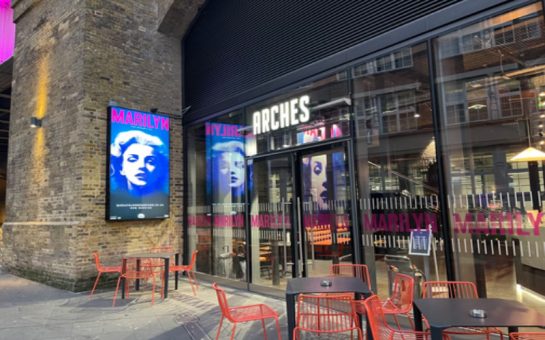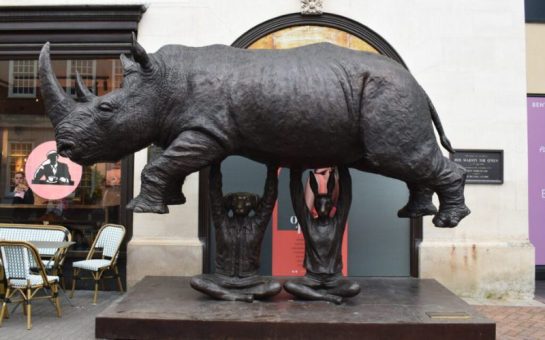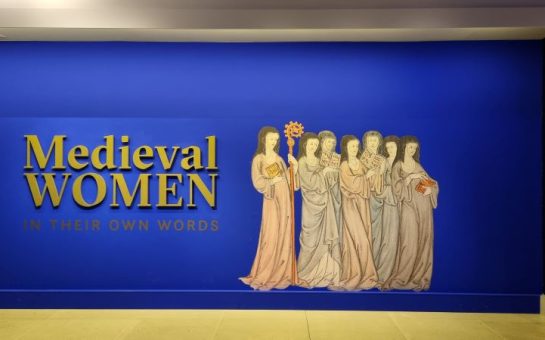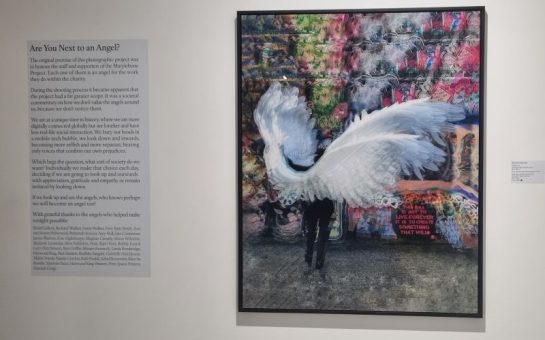The Museum of London Docklands’ London, Sugar & Slavery gallery is now the home of the Feeding Black: Community, Power and Place exhibition.
The exhibition draws on collaborative community collecting to explore the central role that food plays in Black entrepreneurship and identity in south London and opened last Friday, 16 July.
Feeding Black features four London-based Black businesses and explores how they provide services that extend beyond the material goods they offer to their communities.
Community History curator Aleema Gray explained: “When you look at an African cash and carry, it’s more than just a supermarket.
“There’s a Western Union there, arguments about politics, and people drinking – it’s a multidimensional space.
“I want people to walk away from the exhibition knowing that we can think about Black futures in a way that centres liberation.”
Featured businesses
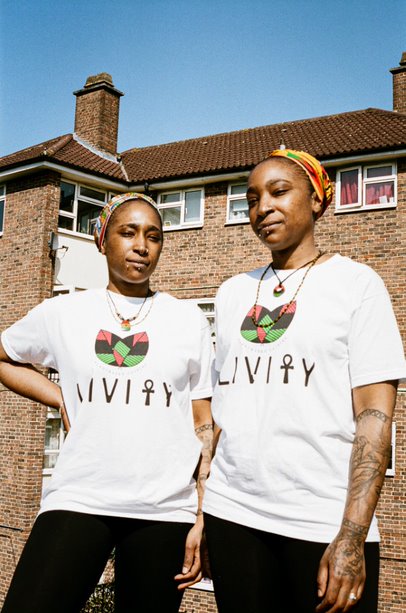
Livity Plant-Based Cuisine – A Croydon-based vegan/vegetarian restaurant owned and run by two sisters, Kaleema and Kareema Shakur-Muhammad. They provide healthy plant-based Caribbean food and a variety of herbs and natural products sourced from Jamaica.
Sisters Kaleema and Kareema Shakur-Muhammad who run Livity Plant Based Cuisine in Croydon. © Jonas Martinez/Museum of London

African Cash & Carry – A Woolwich-based cash and carry, acting as a multidimensional space by serving West African cuisine and providing services to transfer money ‘back home.‘ Owner Eugene Takwa moved to the UK from Cameroon to study marketing and opened the shop with his brother after identifying a gap in the market.
Eugene Takwa outside his business, African Cash & Carry Based, in Woolwich. © Jonas Martinez/Museum of London

Zeret Kitchen – A Camberwell-based Ethiopian restaurant owned and run by Tafeswork Belayneh, author of the vegan cookery book Zeret at Home. The kitchen evolved from a typical English fry up café and now attracts people from across the country with its popular vegan offering.
Tafeswork Belayneh inside her café Zeret Kitchen in Camberwell. © Jonas Martinez/Museum of London
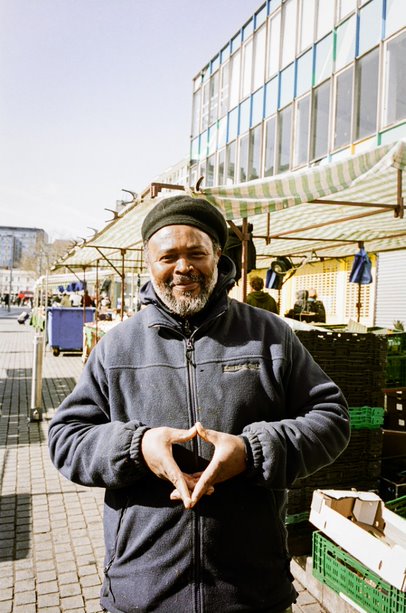
Junior’s Caribbean Stall – A Woolwich-based food stall selling African and Caribbean fruit, vegetables, seasoning and homemade soups. The stall is run by Junior, who arrived in the UK from Jamaica aged 23. He opened the stall in 2007 after working multiple jobs and helping his uncle in a market stall in Catford.
Junior in front of Junior’s Caribbean stall in Woolwich. © Jonas Martinez/Museum of London
Curation
The exhibition’s curation process included taking portraits (commissioned photography by Jonas Martinez) of the business owners, recording their stories and collecting objects from them that represent their place of work.
These objects, including a Dutch pot, Dunn’s River sauce, Pumpkin soup, an African broom and an East African coffee pot, can be found in the display.
The museum collected and considered the objects for acquisition in its permanent London collection.
Gray spoke about her inspiration for the exhibition.
She said: “Brother Junior’s business is a market stall essentially, but he sees his work as a social worker.
“I wanted to play with that more and think about place, space, community and power, and also how people continue to survive and thrive despite challenges with what it means to migrate as most of them were not born here.
“I also wanted to capture the entrepreneurial appetite that is so engrained in Black people.”
Feeding Black caters to the museum’s family-friendly approach with questions about food and culture that aim to stimulate thought in its visitors.
It also includes a recipe wall that focuses on food and health while displaying videos that reimagine African-Caribbean traditional dishes with a twist.
A soundscape with oral histories and sounds collected by Kayode ‘Kayodeine’ Gomez is also used to represent the businesses.

Liberation
Gray is keen to disrupt the depiction of traditional food as a spectacle.
She said: “There seems to be an essentialising of culture when it comes to picturing and talking about food.
“I didn’t want the display to be a spectacle – I wanted it to be an exhibition that centres liberation, joy and power.
“Let’s engage with these ordinary Black people in London who are making such an important role in the community.”
The London, Sugar and Slavery gallery displays a lot of violence towards Black people throughout history.
However the Feeding Black exhibition with its bright mustard yellow wall and colourful portraits is a welcome interruption as it documents history from below, while decentering whiteness in the process.
Gray added: “This is about the ordinary and I think there’s power in the ordinary. It’s centering ordinary Black people, liberation and power, and moving beyond oppressive narratives.”
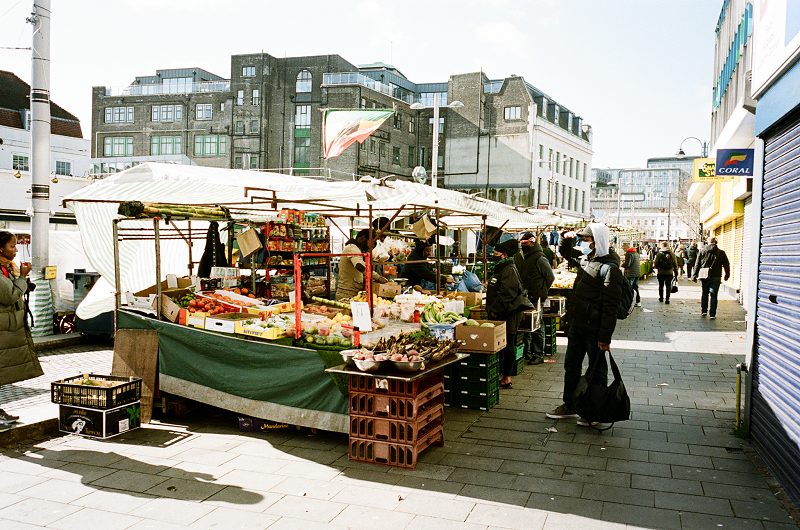
Feeding Black is part of Curating London, a four-year contemporary collecting project that seeks to put lived experiences at the front of curatorial collecting practices.
The project reimagines the role of museums in the contemporary world, and considers objects that will speak to this moment in years to come.
With funding from Arts Council England and staff from a range of backgrounds and professional experiences, Curating London partners with local communities to put Londoners at the heart of its collecting practice.
The Feeding Black exhibition is free to view in the museum until 17 July 2022.
It is part of a wider programme of events that will explore varied practices and understandings around food.
Find out more and book tickets on the Museum of London Docklands website here.
